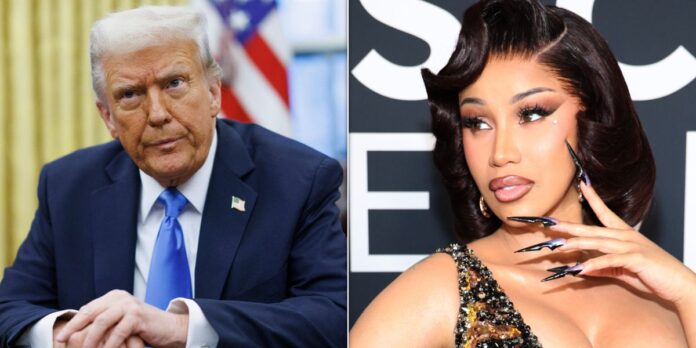
Essential Insights for Readers:
- Vocal Criticism Meets Political Power: Grammy-winning rapper Cardi B warns that her public opposition to Donald Trump could put immigrant communities at risk of increased deportations.
- Legal and Social Ramifications: The artist’s comments highlight ongoing anxieties about the intersection of celebrity influence, government authority, and immigrant rights during heated enforcement crackdowns.
- Broader Implications for Free Expression: Cardi B’s statements open a larger debate on whether outspoken critics of government policy could inadvertently trigger punitive action or chilling effects on free speech.
By Samuel Lopez – USA Herald
LOS ANGELES, CA – When high-profile voices speak out, the reverberations can be felt far beyond the stage. Cardi B, the Bronx-born rapper and cultural force, recently ignited a national debate with her stark warnings about President Donald Trump’s approach to immigration and use of federal force during Los Angeles protests. The artist’s fear: that her outspoken criticism could serve as a catalyst for mass deportations—anxiety rooted not just in personal experience but in the heightened tensions between government power and immigrants across America.
In recent weeks, federal immigration enforcement has surged into the national spotlight, with the Trump administration deploying National Guard units and Marines to assist Immigration and Customs Enforcement (ICE) during demonstrations and raids in Los Angeles and other cities. As protestors clashed with law enforcement and communities braced for intensified action, Cardi B’s response was unequivocal. She described the scene as “dictatorship vibes,” condemning what she perceives as an authoritarian approach to civil unrest and immigration policy.
Cardi B’s commentary is not merely a celebrity’s opinion—it underscores pressing legal and constitutional questions. Does public criticism of the government increase the risk of targeted retaliation, particularly for vulnerable groups? Could a president’s personal animus against critics translate into real-world policy with sweeping effects?
While federal law bars government officials from targeting individuals or groups for exercising free speech, the chilling effect of aggressive enforcement remains a concern for rights advocates.
In her own words, Cardi B explained her hesitation to speak out more frequently on Trump-era immigration policy:
“Personally, the reason why I haven’t really said anything is because I could say something every single day about it, and guess what? Nothing is going to happen because Trump do not give one f### about me or what I gotta say,”Cardi B said, per her recent Live session.
But it’s not just apathy that worries her. She continued:
“I personally believe that he doesn’t like me. So if somebody don’t like you, right? And they say something or they do something, you be like, ‘oh, word? Now I’ma show you. You thought I was being f##### up, now I’m a show you that I’m being f##### up.’ I feel like if I say something, he’ll be like, ‘aight, since you wanna talk s###, I’m a deport 500 people today on purpose just to p### you off.’”
Cardi B’s anxieties echo fears voiced by many in the immigrant rights community: that outspoken advocacy could, intentionally or not, prompt harsher policies or enforcement actions. While there is no direct evidence that the president’s immigration decisions are guided by celebrity criticism, the fear itself points to a deeper question—how much power does political speech hold in the age of social media and polarized politics?
From a legal perspective, the First Amendment stands as a bulwark against government retaliation for protected speech. Courts have long held that criticism of public officials—even in the harshest terms—is protected unless it directly incites violence or constitutes a true threat.
However, the legal line between robust enforcement and punitive action can be blurry in practice. The Immigration and Nationality Act (INA) grants the executive branch broad discretion to enforce immigration law, including the power to prioritize certain removal cases. That discretion, while expansive, is not unlimited—and selective enforcement based on protected speech could invite constitutional challenges.
“We could be in ruins. You never know what tomorrow brings. And I feel like COVID f###### showed us that. And all these things that is going on with the economy and even more. Don’t ever abuse power. Nobody’s more powerful than God,” Cardi B added, urging officials to recognize the humanity and contributions of immigrant families.
President Trump’s hardline stance on immigration is well-documented, from “zero tolerance” border policies to widespread ICE raids in sanctuary cities. During the most recent demonstrations in Los Angeles, the deployment of federal forces sparked new legal challenges from local officials and civil liberties groups, who argue that such actions overstep constitutional limits and undermine due process.
For critics like Cardi B, the risk is not only personal but collective. The legal system is designed to prevent “viewpoint discrimination” by public officials—a core First Amendment principle. But the power of executive discretion and the opaque nature of immigration enforcement mean that fears of arbitrary or retaliatory action persist.


